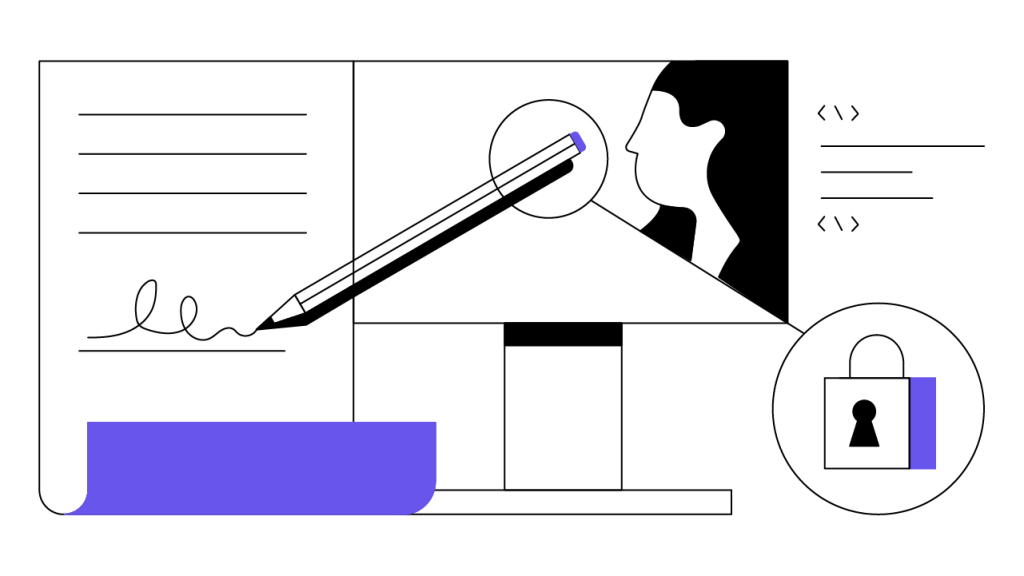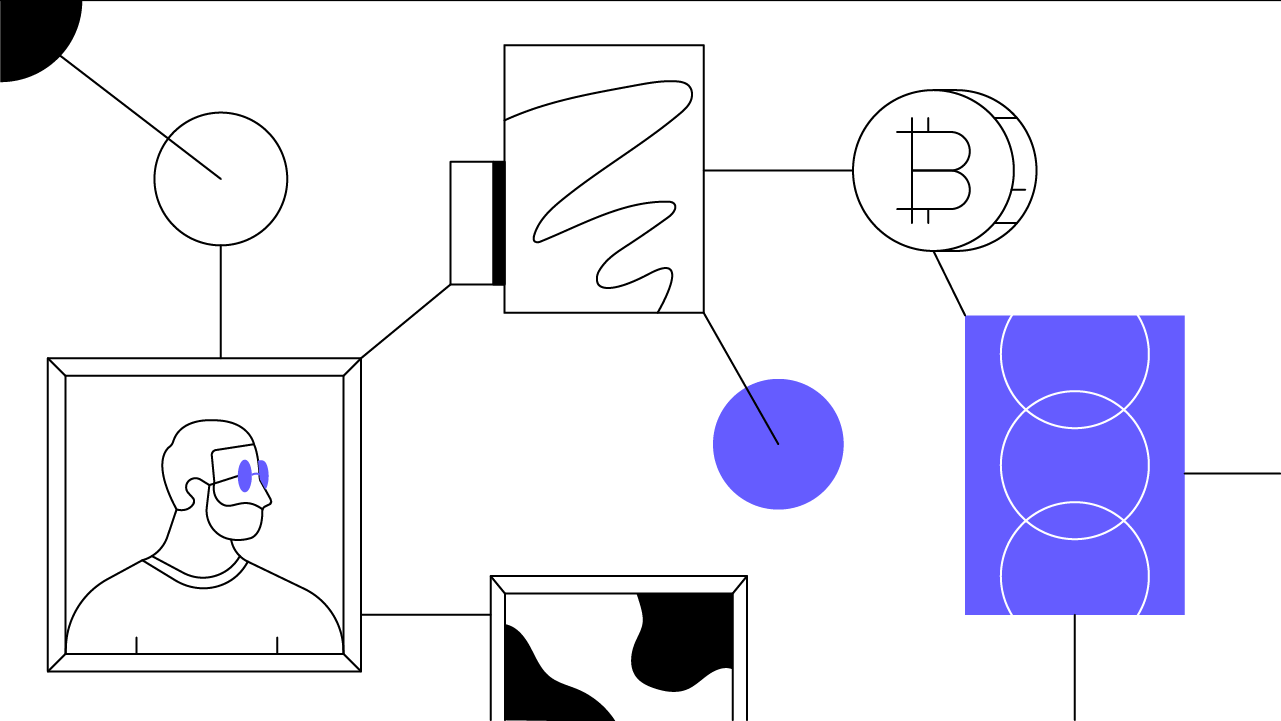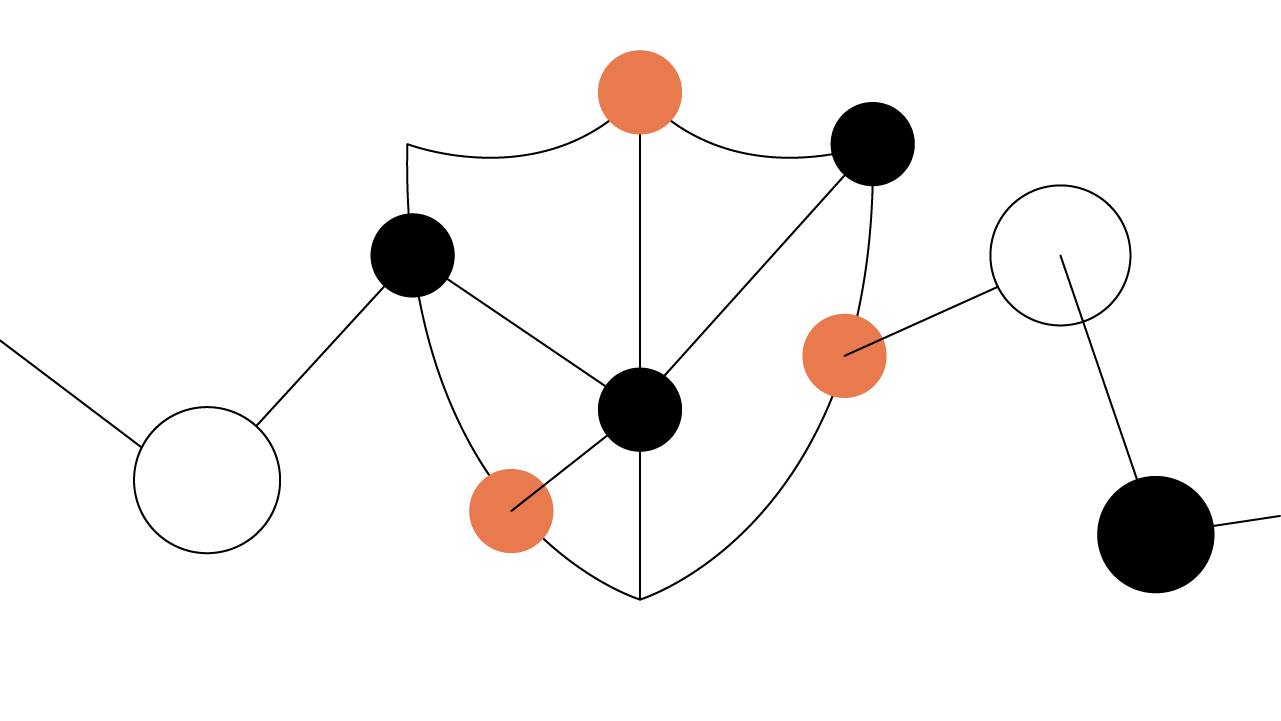Contents
Introduction: What Are Smart Contracts?
Smart Contract Use Cases in Finance
NFTs and Smart Contracts: Blockchain Technology in Gaming
Smart Contracts and Blockchain in the Legal Industry
Blockchain in Real Estate
Smart Contracts Uses in Corporate Structures: Building DAOs
Applications of Smart Contracts in Emerging Technology
Potential Smart Contract Advantages in Other Industries
Real-World Use Cases for Smart Contracts and dApps
Discover how smart contract use cases are revolutionizing the world around us, as well as how many experts see smart contract utility expanding in the future.
Updated December 23, 2021 • 6 min read

Summary
A smart contract is self-executing code that carries out a set of instructions, which are then verified on the blockchain. They are a core technological element of many decentralized applications (dApps). A key characteristic of smart contracts is that they are trustless, meaning they can reduce or even eliminate the need for third-party intermediaries. Read on to learn how smart contracts are impacting the worlds of finance, real estate, healthcare, gaming, and more.
Introduction: What Are Smart Contracts?
Smart contracts are one of the key components of many blockchain-based ecosystems, and an especially important element of many application-focused blockchains like Ethereum. These digital contracts are trustless, autonomous, decentralized, and transparent — and are usually irreversible and unmodifiable once deployed. Smart contract advantages include reducing — or even removing — the need for intermediaries and contract enforcement in an agreement or transaction. That’s because with a smart contract, the code defines the mechanisms of the transaction and is the final arbiter of the terms. For this reason, smart contracts have become the building blocks of an entire ecosystem of decentralized applications (dApps) and represent a major focal point of blockchain development in general.
A solitary smart contract can only be used for one transaction type: If something happens, then something else happens. However, most dApps work by bundling smart contracts together to enable a sophisticated, synergistic set of functionalities. There are thousands of dApps across various blockchain networks, including finance, gaming, exchanges, and media — and they can all utilize smart contracts in different ways and to different ends. Examples of smart contract applications include financial purposes like trading, investing, lending, and borrowing. They can be used for applications in gaming, healthcare, and real estate; and they can even be used to configure entire corporate structures. In this article, we’ll cover some of the real world examples of smart contracts and dApps, and explore their potential to shape the future as well.
Smart Contract Use Cases in Finance
Decentralized finance (DeFi) dApps represent a formidable alternative to traditional financial services, and they are growing in popularity thanks to the trustless, immutable, and transparent characteristics of blockchain and smart contract technology. DeFi dApps provide parallel services to the banking and financial services industry — like lending, borrowing, trading, and a host of other financial services — along with entirely new types of products and decentralized business models that can offer considerable benefit and utility for users. With the increased transparency furnished by smart contracts (along with 24/7 functionality, and reduced costs), dApps have the potential to lower the barriers to entry into the financial services arena for people all over the world.
DeFi projects have already captured billions of U.S. dollars in value and look to continue this trend as more and more people become familiar with the unique value propositions of the sector. Users can participate in this new generation of financial services without the need for centralized custody or fees from intermediaries. Although the DeFi sector is only a few years old, given the number of innovative dApps that are already providing value and utility to consumers, the effects of smart-contract-powered dApps on the financial industry are already being felt.
NFTs and Smart Contracts: Blockchain Technology in Gaming
The global gaming industry is a hundred-billion dollar ecosystem that continues to grow quickly, but the way value is created and distributed throughout the industry can be inequitable. Developers make and release games, and players pay to play and interact with those games. This perpetuates a one-directional flow of value where players spend money to unlock access to in-game assets and gameplay configurations. In contrast, blockchain technology in gaming can enable players to capture the utility and value of in-game purchases and asset acquisitions more effectively.
Blockchain technology in gaming is commonly driven by non-fungible tokens (NFTs) — unique digital assets that represent in-game content. NFTs rely on smart contracts. These tokens are unique, rare, and indivisible, while the blockchain networks that underpin NFTs facilitate player ownership, provable scarcity, interoperability, and immutability. Together, these characteristics of blockchain in gaming have the potential to drive mainstream adoption and a more equitable value model.
Thanks to the implementation of blockchain technology in the gaming industry, you can save in-game purchases, sell them to other players, or move them into other supported games. Meanwhile, the scarcity of in-game NFT purchases is provable through the immutable records embedded in an NFT’s underlying blockchain network — as is its history of ownership. Because NFTs are unique and can be designed to retain value beyond the game in which they originated, blockchain-built games and dApps have the potential to expand gaming economies, establish new gaming categories, and fuel development of new games. Blockchains with significant gaming development include Ethereum, TRON, EOSIO, and NEO.
Smart Contracts and Blockchain in the Legal Industry
Perhaps one of the most promising real world smart contract use cases is their potential to function as legally binding contracts — the kind that inform most of today’s business engagements. Technology has been driving innovation in the legal industry, most recently with the advent of e-signatures for binding legal agreements. Smart contracts represent another new development in this space, and may soon be an option for parties to legal agreements, potentially lowering the costs incurred from using lawyers and other intermediaries.
The widespread use of bespoke smart contracts for myriad types of transactions that can lower costs and increase transaction speeds may be closer than you think. Some U.S. states have begun to permit the use of smart contracts and blockchain in the legal industry in certain contexts. For example, Arizona allows enforceable legal agreements to be created via smart contracts, and California allows marriage licenses to be issued via blockchain technology.
Blockchain in Real Estate
Through tokenization, smart contracts are advancing the fractional ownership of assets and thus lowering the barrier to entry for investment for many by merging blockchain and real estate transactions. In particular, there have been a number of successful endeavors in tokenizing real estate assets, including via platforms like RealT and SolidBlock that fuse blockchain and real estate. Smart contract technology can also rework the documentation and transaction processes by incorporating blockchain in real estate transactions. For example, the Republic of Georgia (in the Caucasus region) has been developing a blockchain-based land title registry since 2016, and similar projects are underway in other jurisdictions such as the United Arab Emirates (UAE).
Anyone who has purchased a home or other property is likely aware of the potential for hidden costs connected to closing fees, title transfers, and broker fees. These are costs that might be reduced or even eliminated by automatically executing smart contracts that function free of intermediaries. When a piece of property is tokenized, much of the required record-keeping can take place via associated smart contracts, which can save the parties time and money. Some experts even claim that smart contracts can benefit parties by streamlining rental agreements and complex credit or mortgage agreements, as well as warranties and insurance. By using smart contracts and blockchain in real estate, the need for legal counsel or other advisory services becomes less crucial, potentially cutting costs across the board.
Smart Contracts Uses in Corporate Structures: Building DAOs
In 2017, Delaware passed Senate Bill 69, which allows businesses to be incorporated and managed using blockchain technology. This bill opened the door to the proliferation of decentralized autonomous organizations (DAOs), which function as corporations wherein ownership and compensation can be built into smart contracts. DAOs, using smart contracts to encode corporate structures, can enable sophisticated, automatically enforced incentive structures within a corporate framework. DAOs can also drive savings in administrative costs including office space, hiring, and payroll through incentive structures that may not include formal employment contracts.
Applications of Smart Contracts in Emerging Technology
One of the most exciting applications of blockchain technology and associated smart contract technology is the ability to facilitate complex computational tasks like those involved in machine learning and artificial intelligence (AI). By combining the data intensive processing of AI with the decentralized security and immutability of blockchain technology, there is potential to create AI-powered smart contracts. As smart contract applications become implemented across various industries, they will need to become increasingly complex to accommodate their new roles. While rudimentary smart contract use cases can be manually designed, AI-enabled smart contracts might allow for the construction of highly complex, more responsive, enterprise-grade smart contracts and dApps that have the potential to dramatically expand the capabilities of the technology.
Many experts postulate that the fields of AI and blockchain may benefit from each other’s defining characteristics. Smart contracts can benefit from the advanced computational capabilities and adaptive systems of AI technology, while AI implementations could utilize smart contract technology for its autonomous execution of sets of rules and to provide a secure environment for sensitive and valuable machine learning data to exist. Zilliqa is one of the many blockchain platforms that is developing advanced computational capabilities with its proprietary smart contract programming language, Scilla, and advanced parallel processing structure enabled by sharding.
Potential Smart Contract Advantages in Other Industries
This list of real world applications of smart contracts is by no means exhaustive, and smart contract technology stands to improve upon countless other industries far into the future. Many researchers and developers are eager to leverage the benefits of smart contract technology to address needs of the growing Internet of Things (IoT). While blockchain technology in general is already being used to lend security and transparency to IoT devices, smart contract advantages may further this integration.
Healthcare is another industry that has begun to integrate blockchain technology for secure, trustless, transparent data sharing. The relationship between healthcare and blockchain technology may also be bolstered by the integration of smart contracts and entire dApps designed to solve key healthcare pain points such as interoperability, identification, and authentication challenges. With all of these established use cases, and the ongoing discovery and development of many more, smart contracts and dApps are poised to continue revolutionizing the world of digital agreements.
Cryptopedia does not guarantee the reliability of the Site content and shall not be held liable for any errors, omissions, or inaccuracies. The opinions and views expressed in any Cryptopedia article are solely those of the author(s) and do not reflect the opinions of Gemini or its management. The information provided on the Site is for informational purposes only, and it does not constitute an endorsement of any of the products and services discussed or investment, financial, or trading advice. A qualified professional should be consulted prior to making financial decisions. Please visit our Cryptopedia Site Policy to learn more.

Is this article helpful?


